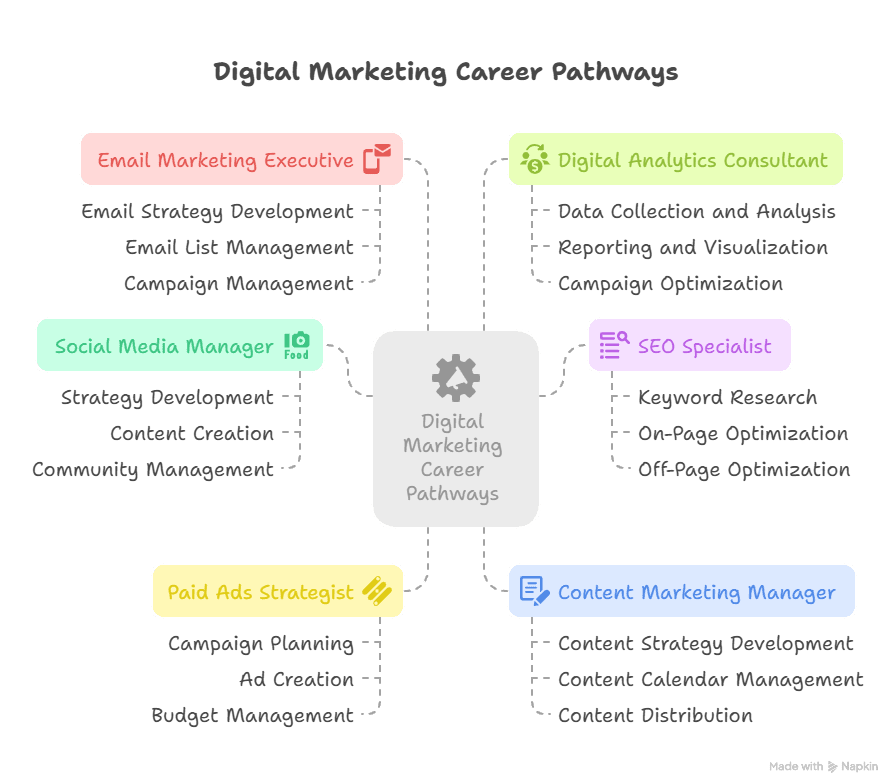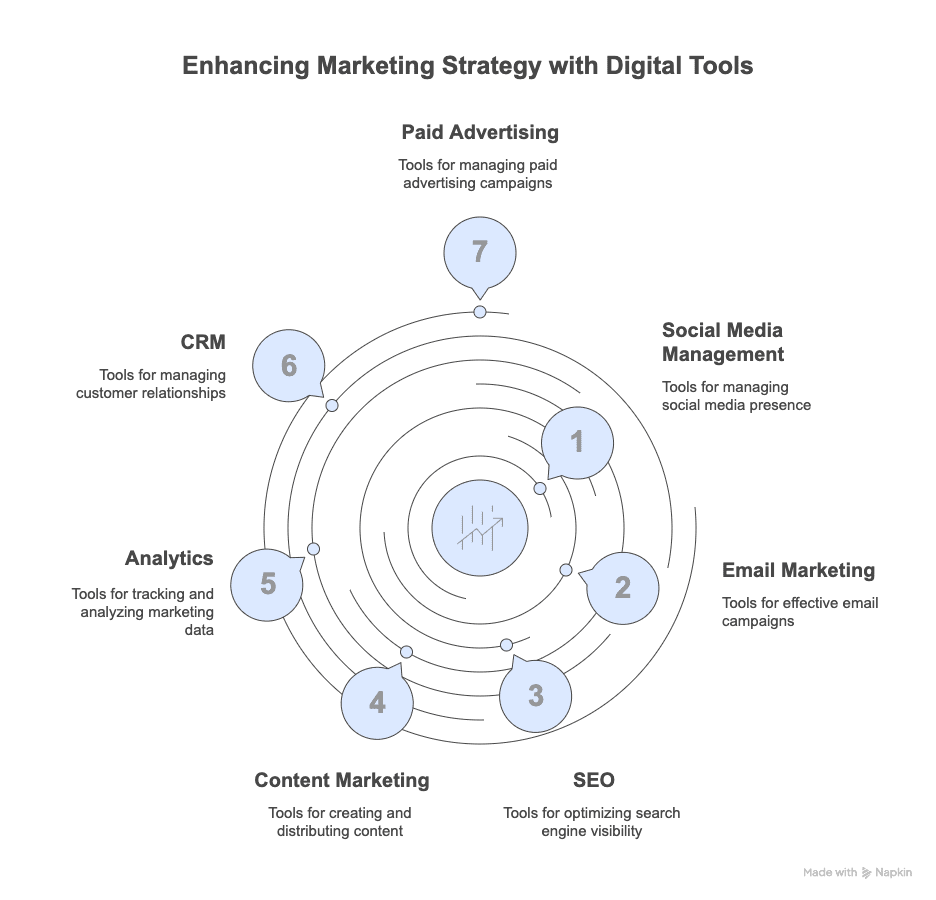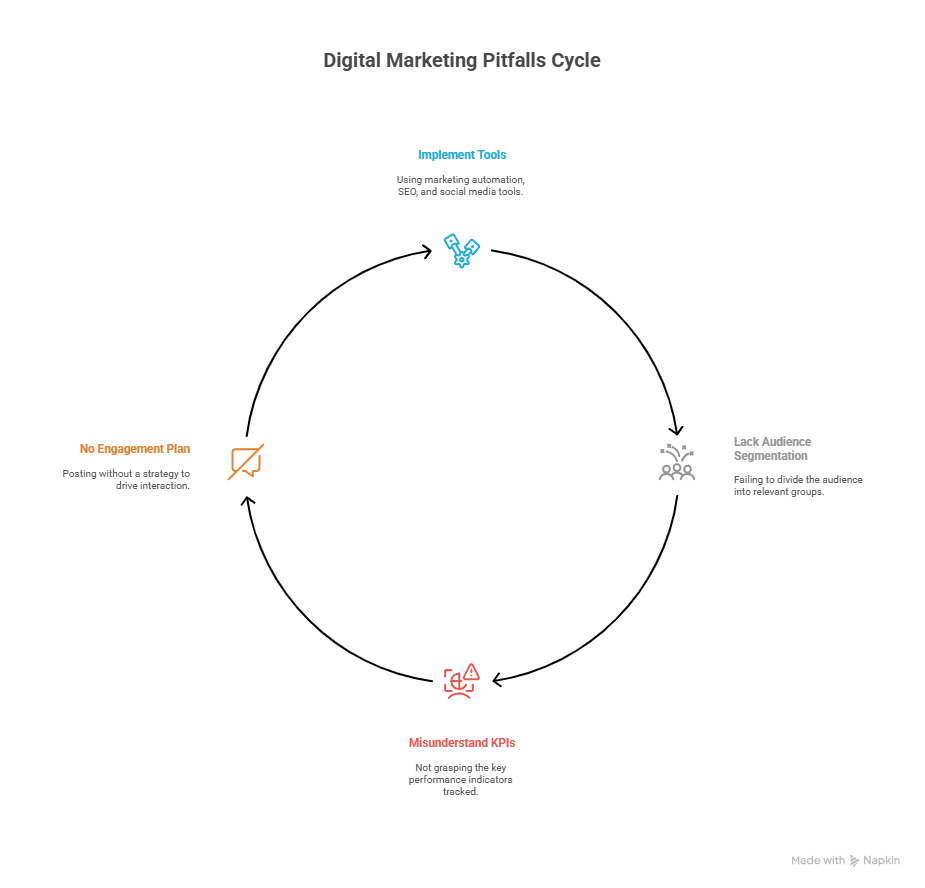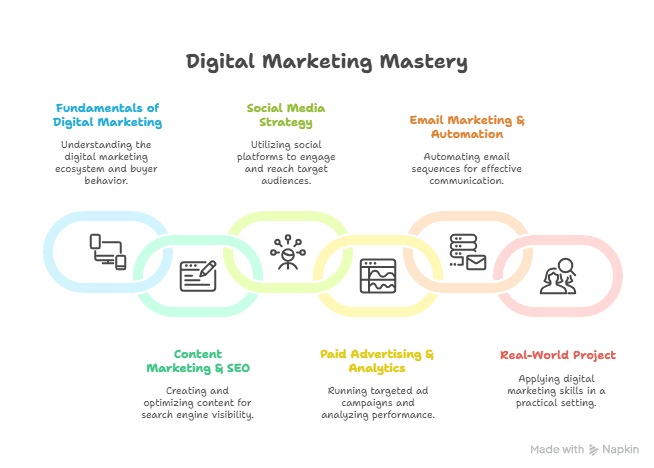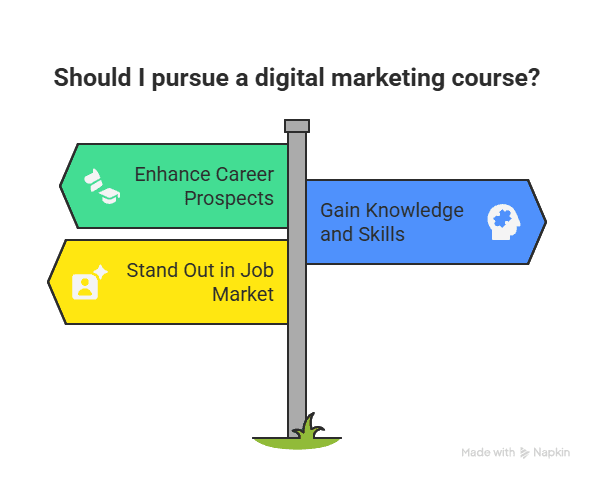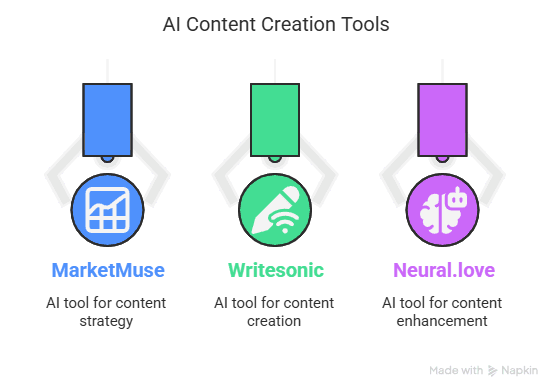Not long in the future, in 2025, a job in digital marketing will not be a simple form of posting on social networks. It is all about being able to combine creativity, strategy, data analysis and communications. The businesses require individuals who have the ability to create campaigns, enhance online presence, promote conversion, and evaluate indicators.
Are you trying to make a vibrant career and see quick development and advance in your career in digital marketing?
Read through this post learn the basics of digital marketing, flow up the certification ladder, and dream job positions in the world of SEO, content, and social media marketing.
Why a Career in Digital Marketing Is Future‑Proof
Demand for jobs in digital advertising and social media marketing career roles is rising. Businesses of all sizes invest in online presence, and roles like SEO and content marketing roles or performance marketing specialists are in high demand.
Digital marketing refers to the branch of marketing that promotes products and services through the internet and online digital technologies, including desktop computers, mobile phones, and various digital platforms.
The digital revolution is no longer the preserve of large metros. The smaller Indian towns are quickly becoming digital centres with cheap smartphones and data packages. With the corresponding growth of internet users, every business wants to find a way to reach them, thus creating a major demand for local digital marketers.
Currently, companies in the market are more than ready to employ marketers with a regional background with knowledge of the local tongue, culture, and consumer behavior. This would be a good platform where youths are given an opportunity in smaller towns to express their talent on a national level, even at an international one.
State Support of Digital India
The government has also been trying to digitise the business through e-India, Start-up India, and encouraging cashless payment, and it should be done by skilful professionals, who should be at the forefront of such efforts.
It can be e-health, online groceries, or online learning, but one thing is clear, government spending on technologies-enabled services is taking off. This boom opens up a plethora of new opportunities, creating key opportunities in the world of digital marketing, content creation, search engine optimisation and paid media.
The Growing Demand for Digital Marketing Professionals
The virtual world is growing so rapidly today, and digital marketing is a career with the brightest and most remunerative prospects. Thousands of new online brands are aiming to become well-established companies, meaning that demand among digital marketing specialists will increase by more than 10% in 2022 and continue to do so in the upcoming year.
Whether it is the increasing popularity of e-commerce technologies, the boom of mobile, or online advertising, all trends lead to the same conclusion: online marketers are scarce. Such rapid growth provides a wide range of job opportunities.
These are some of the most common career choices in the industry:
Social Media Manager
You will have to deal with the content and campaigns within such platforms as Facebook, Instagram, LinkedIn, and Twitter. What you are primarily concerned about? Develop interest, increase followers and solidify online presence of the brand.
Content Creator
Are you a lover of writing, designing, or video-making? This would be the right choice. In your role as a content maker, you will create blogs, videos, articles, etc, employing such mediums as text and images in order to encourage interaction and voice brand recognition.
Digital Marketing Guru
This position includes organising and conducting marketing campaigns and examining performance statistics. It is vital for businesses to derive maximum profits using the internet. After some time, you may advance as a Digital Marketing Manager or Project Manager.
The trend of moving forward to become digital-first only emphasises the increasing popularity of being in a digital marketing career. There will be a specific demand for professionals, who can promptly adapt and specialise in the sphere of mobile marketing, SEO, and paid advertising (PPC).

Core Skills Needed to Succeed in Digital Marketing
As of early 2025, India had 1.12 billion active cellular mobile connections, representing 76.6% of the total population. However, some of these connections may cover only voice & SMS services and might not include internet access.
Technical Skills
- SEO: It is important to stay in front of the algorithmic changes and voice search, as well as feature snippets.
- SEM: Get to know about PPC strategies, Google ads, and bid strategies to boost prominence of brand.
- Artificial Intelligence Implementation: AI can be used to analyse data, make tasks automated, and create extremely targeted marketing plans.
Creative Skills
- Content Marketing: Master the art of making useful information in the form of a blog, video, or podcast.
- Creative Writing: Get to the story, brand voice, and hooks of emotion to touch your audience.
- Graphic Design: You can use graphic design to create visual art to support campaigns and appeal to users using some basic knowledge of design.
Soft Skills
- Communication: Good communication traits are required – both when representing ideas or working together with members of the team.
- Flexibility: The world of digital is quickly evolving. To be adaptable and willing to learn is essential.
- Problem-solving: Analytical thinking will assist you in solving problems and maximising marketing activities efficiently.
| Skill Type | Skill |
| Technical | SEO |
| SEM | |
| AI in Marketing | |
| Creative | Content Marketing |
| Creative Writing | |
| Graphic Design | |
| Soft | Communication |
| Flexibility | |
| Problem-solving |
Upgrading your skills & staying abreast of the goings-on in this industry will keep you ahead of the pack because this industry is constantly changing. Digital marketing is not a job; it is an exciting career path with opportunities.
Advanced Certification in Digital Marketing By Imarticus Learning
In the world, traditional marketing has been overtaken by digital marketing. Whether it’s search engine optimisation, artificial intelligence-enhanced analytics, or even listing a lot of marketing technology, also commonly referred to as MarTech, marketing technology is now influencing the decisions, income, and brand loyalty.
Employers today are looking for professionals, those who not only understand strategy but also know how to execute using the latest tools and techniques. That’s where this certification stands out.
Offered in collaboration with Imarticus Learning, this programme is a 6-month online course designed by top IIT Roorkee faculty and industry experts.
The MyCaptain Digital Marketing Programme gives structured learning with real-world projects:
| Feature | Benefit |
| 18‑Week Duration | Rapid learning with job assurance |
| 6–20 Live Classes per Module | Covers fundamentals, SEO, social media & performance marketing |
| 12 LPA Highest CTC | Proven placement success: 12 lakh per annum |
| 10 Assured Interviews | Interviews guaranteed with 1000+ hiring partners |
| Expert Faculty | Mentors from Rapido, Deloitte, MFine & Zomato |
Use your new skills to stand out in jobs in digital advertising and social media marketing career roles.
Master digital marketing analytics with Imarticus Learning from this video
FAQ
- What does a digital marketing career entail?
It includes such talents as SEO, social media marketer, content strategist, and performance advertiser.
- What digital marketing skills are the most important?
The first ones are analytics, SEO, the content, paid advertisements, and social media planning.
- Which are the top digital marketing certifications?
Google Ads, Meta Blueprint, and programmes such as MyCaptain by Imarticus Learning.
- What careers are in the digital advertising industry?
Some positions are PPC specialist, programmatic advertising expert, and media planner.
- Should I have experience in SEO and content marketing roles?
You will have an upper hand by showing SEO abilities and content campaigns.
- Will digital marketing be a good career in 2025?
Absolutely. Demand keeps growing as businesses enhance their digital presence.
The Final Words
Ready to start your career in digital marketing?
Join MyCaptain Digital Marketing Programme by Imarticus Learning now and learn the fundamentals of digital marketing, achieve the best certifications, practice on real projects and enjoy job security and professional guidance.

